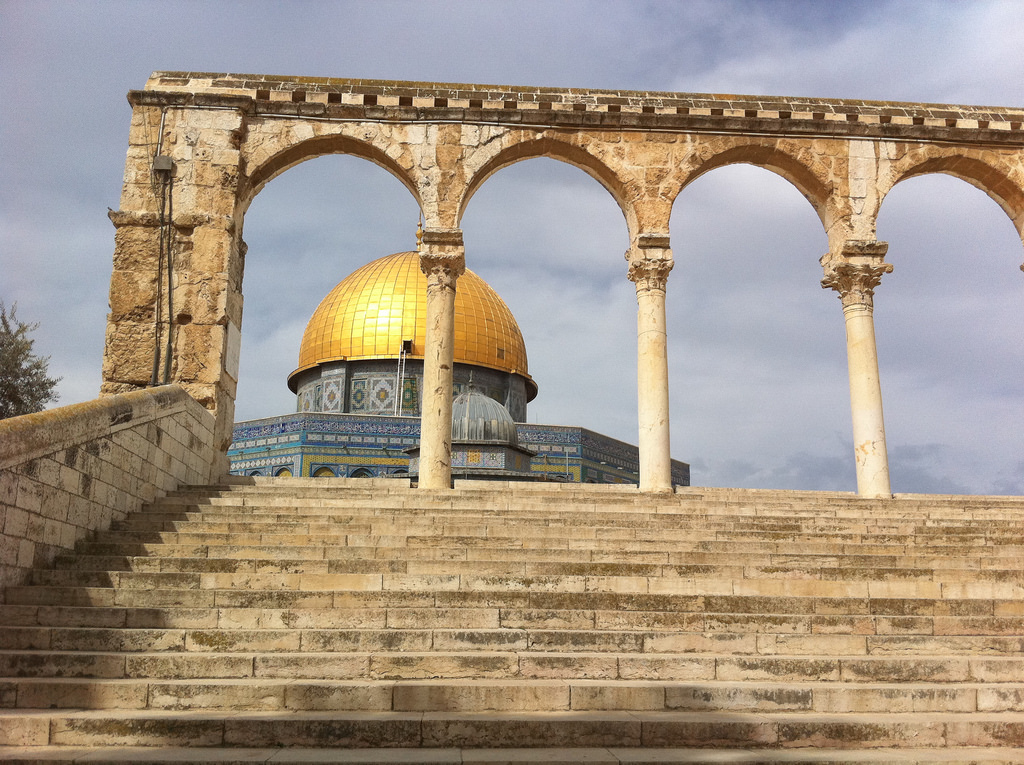No global crisis embodies the difficult relations Muslim and Jewish people share more than the Israeli-Palestinian conflict. Deeming the conflict a non-religious one would be a mistake.
With nearly the entire Palestinian population following Islam and Israel continuously being regarded as a “Jewish” state — the two countries are fighting for more than just land, but a right to exist in this holy region.
With Israel slowly engulfing the Palestinian territories through obvious occupation and force, it seems as though both Muslims and Jews, although frequently targeted and discriminated against in countries like the U.S., were having difficulty coming to terms with one another as a result of this ardent Middle Eastern conflict.
For decades, whenever the two religious groups came together — whether in conversation or protest — it usually involved the Israeli-Arab conflict.
Yet, hate crimes committed toward members of both religions motivated by a surge in white nationalism, anti-Semitism and Islamophobia following Donald Trump’s ascent to presidency, have united the two religious communities.
Yet, Muslim and Jewish allegiance is not exclusive to the U.S. — overseas, unity is becoming widespread as Israel currently deals with over a dozen wildfires officials are having trouble extinguishing.
The current fires that spread across Israel’s third-largest city, Haifa along with more than a dozen other fires around the country, have showcased Arab-Israeli solidarity.
A great deal of Israeli citizens have received aid from their Palestinian neighbors — whether through the help of extinguishing fires or helping Israeli’s get back on their feet after losing their homes.
It’s a curious and inspiring occurrence: American Jews and Muslims have become united by politics while Palestinian Arabs are leaving politics behind to help the Israeli people.
Islamophobia/Anti-Semitism in the U.S.
Over the past several days, three California mosques, including the Long Beach Islamic Center, received photocopies of the same handwritten letter deeming Muslims “vile,” “evil” and “the Children of Satan.” Furthermore, the letters threatened that Trump would “cleanse America” of Muslims during his presidency.
The Islamophobic letters are merely one example of a plethora of hate crimes committed toward Muslims across the nation since Trump became the country’s president-elect.
Since the election, there has been an increase in the number of hate crimes reported against immigrants and people of color — particularly Muslim-Americans, according to the Southern Poverty Law Center.
Following the events of 9/11 and the rise of extremist terrorist attacks across the world, Muslims have been profusely discriminated against. Trump’s hateful rhetoric toward members of the religion merely worsened the situation.
However, with Trump’s rise to power not only came a rise in Islamophobic sentiment but also white nationalism — the kind influenced by Nazism.
A report released Tuesday by the Southern Poverty Law Center found that there have been 100 cases of anti-Semitism in the 10 days following the election of Donald Trump. Many of these incidents involved vandalism incidents of swastikas — some spray-painted on synagogues.
A great deal of Muslims and Jews are struggling to feel welcome, or even safe, in a nation whose constitution protects and encourages religious freedom. With that said, these arduous times have brought the two together in a heartening way.
According to Israel’s oldest daily newspaper, Haaretz, the “American Jewish Committee and the Islamic Society of North America recently teamed up for a new group leading Jewish and Muslim Americans: The Muslim-Jewish Advisory Council.”
The new council was formed less than a week after Trump’s win and according to the AJC press release, the new group “brings together recognized business, political and religious leaders in the Jewish and Muslim American communities to jointly advocate on issues of common concern.”
It seems as though the Israeli-Palestinian conflict is beginning to lose its influence on how American Jews and American Muslims build relationships. The two groups share important concerns about disenfranchisement, discrimination and threats of violence — and are coming together to fight against intolerance.
Israeli and Palestinian Cooperation
Cooperation between Muslims and Jews has also been evident in the region where tensions between the two major religious groups began — Israel and the Palestinian territories.
Israel is currently dealing with rampant fires throughout the nation caused by arson. So far, hundreds of Israeli homes and businesses have succumbed to the flames — leaving many Israeli citizens homeless and struggling financially.
Yet, the unfortunate events in Israel have incited acts of compassion and help from their Palestinian neighbors — an unusual yet extremely supportive occurrence.
According to a New York Times article titled, “Amid Flames and Suspicions in Israel, Acts of Jewish-Arab Cooperation” by writer Isabel Kershner, “Arab members of the Israeli Parliament offered their homes to Jewish evacuees from fire-affected areas; local Arab community centers and restaurants opened their doors to those fleeing the flames. The gestures exposed the contradictions that run through the fragile patchwork of Israeli-Palestinian coexistence.”
Furthermore, Prime Minister of Israel Benjamin Netanyahu thanked the Palestinian President Mahmoud Abbas for sending fire trucks and aid to fight the ongoing wildfires.
Muslims and Jews are uniting to help one another through difficult situations whether dealing with dangerous political environments like the one Trump has created or unfortunate acts of terrorism which threaten both parties.
It’s time to embrace this unity between the two religions — although the road to a peaceful resolution for the Israeli-Palestinian conflict is long and rather tumultuous, baby steps are key.




